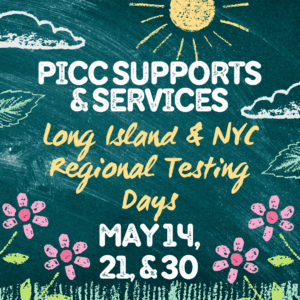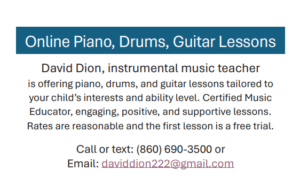By Deanne Crawford
An ancient proverb reflects the foundational philosophy of the unit study approach.
Tell me and I forget.
Show me and I remember.
Involve me and I understand.
Unit studies provide an excellent conduit for learning as they teach our children through a hands-on approach, incorporating different learning styles with proven success in the home and classroom settings. So, why is it that many parents break out in a cold sweat and feel totally overwhelmed at the idea of unit studies? Could it be that they feel they are not adventurous, creative, or possibly organized enough to be successful with the unit study philosophy? Let me reassure you, while these are great traits for the unit study family, they are not requirements for success!
In our family, like many homeschool families, we began homeschooling with a traditional textbook approach, and while this was easy to implement, my children quickly became disinterested. Providentially, as we finished our first year and began to look forward to the next, my husband accepted a “barter payment” for a job. His payment? A comprehensive unit study curriculum called the Weaver. We quickly adapted and loved learning together—subjects made more sense as we saw how they were interrelated, and most importantly, we flourished as a family learning together.
One of the tremendous benefits of the unit study approach is that it provides a solid platform for organizing your homeschool by allowing children of multiple ages to learn together. Unit studies allow families to study core subjects like history/geography, science, art/music, and language arts together, doing most of the activities and projects together while challenging children at their own individual levels. In fact, with the unit study, the only subjects that will need to be added are grade-appropriate math and spelling/phonics.
As you consider incorporating unit studies, what are the most important things that should influence your decision-making? Here at Rainbow Resource Center, we have developed an acronym to help families to evaluate and organize unit studies. The acronym P.R.O. is defined as Pick your topic, Research your topic, and Organize your unit study.
There are several things families should consider as they pick a unit study topic or curriculum. The first consideration is the age of your child. While it seems obvious to say, the unit study should be age appropriate or able to be “tweaked” for younger children. Several years ago, my son (7) became fascinated by the Titanic. I created a simple overview unit study of the Titanic, which he devoured, and he begged for more. As I continued to develop our Titanic unit study, I quickly found some aspects to be challenging for a young child and adapted the information for him.
Another age consideration is the need to develop or purchase a unit study focused on the oldest child in the family. It is important that the unit study be challenging for your oldest child. Typically, it is easier to simplify the study for younger siblings than it is to “upgrade” for the older ones. Another beautiful aspect of the unit study approach is that older children can actively explain (teach!) the information to younger children, which further enhances their learning.
Another consideration is interest level. As parents, we understand that children will be eager to learn if it is a topic or subject in which they are interested. On the flip side, due to the interactive nature of a unit study, I encourage parents to select a topic of interest to them, as well. Let’s face it. If mom isn’t interested, the study just won’t happen!
Family dynamics also play a significant factor in your unit study journey on many levels. Within the family dynamics are the number of children you have; any health issues in the family (parent or child), and anticipated life changes (for example, moving or birth of a child). When you look at your individual family dynamics, you will want to prayerfully consider each of these areas.
Quickly, in overview, family considerations would be the following: unit studies are primarily designed with group learning in mind, so having one child may involve more hands-on participation from the parent(s). Health issues will have an impact on the time available for the study; however, using a prepared unit study curriculum will save time in planning and preparing for the parents. Although some additional items will be necessary, the bulk of planning and scheduling is done for you. In my family, we experienced various health issues (in myself) over the fifteen plus years we home educated. In those instances, we found literature-based unit studies to be a tremendous blessing, as we were able to do the core of our study from the couch/bed.
Financial considerations are a reality for all homeschool families. One of the greatest benefits to the unit study lifestyle is the expanse of materials available. If families are able to spend a bit more money, purchasing a prepared unit study curriculum is a tremendous time saver. On the flip side, for families on a more limited budget, unit studies can be created using the internet, a library card, and commonly found household items. While it is true that mom-created unit studies will involve more time in the research and planning stages, the money saved makes this a worthwhile option for many families.
Incorporating unit studies into your homeschool is a valuable way to enhance learning and build family relationships. The beautiful thing about unit studies is that they are flexible, allowing you to incorporate them in the way that best fits YOUR family! Over the years, we have enjoyed the diversity that only unit studies can provide. Our unit study adventures have varied from one week, several months, and even our infamous Titanic unit study that lasted over two years. My children enjoyed our unit study ventures and learned immensely more about a given topic than I ever imagined.
Deanne Crawford’s journey into homeschooling began in 1997. At that time, Deanne and her husband made the decision to bring Deanne home from her nursing career to focus on their children. Amanda graduated from their homeschool in 2009 and Jackson in 2013. Eclectic in her approach, she preferred to pick and choose what she felt would work best for her children and is a self-proclaimed curriculum junkie (although, if pressed, she would define their philosophy as “Charlotte Mason, delight directed, with a little bit of Unit Studies mixed in.” Inspired by the Moore approach, the Crawfords included service as a core part of the children’s education, including age-appropriate opportunities for their children. She sincerely believes homeschooling has been the greatest blessing to their family, and although not the easiest thing she has ever done, definitely her greatest accomplishment. Deanne is a consultant with Rainbow Resource Center.
www.rainbowresource.com




